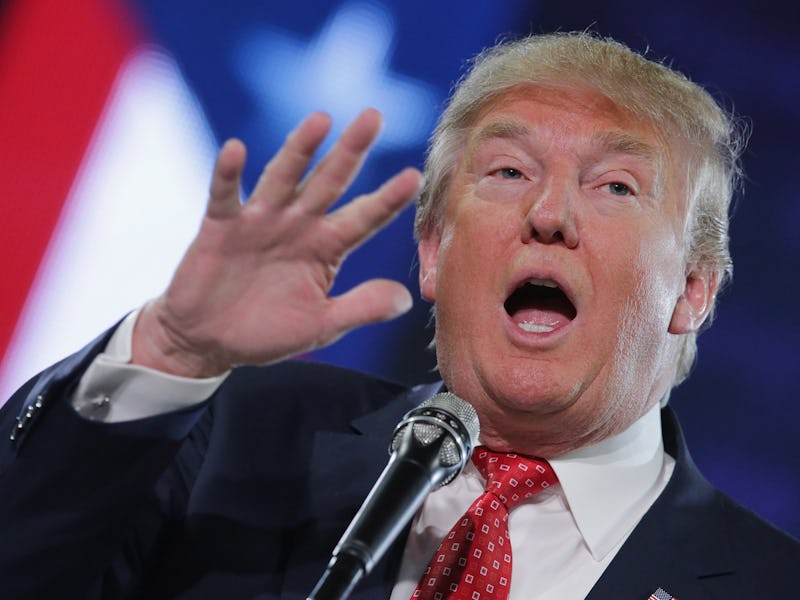British Parliament Burns Donald Trump: A 'Poisonous, Corrosive Man'
'He is free to be a fool. He is not free to be a dangerous fool in Britain.'

Donald Trump is free to be a fool, just not in Britain, argued government officials today in London.
Whether Trump is just a garden variety buffoon with an exceptionally large stage or a historically dangerous buffoon who’s irresponsible rhetoric is actually whipping supporters into a violent frenzy is the question Britain’s House of Commons circled on Monday for nearly three hours, as it argued a petition to ban the former Celebrity Apprentice host from the the United Kingdom.
There’s just one snag: Only home secretary Theresa May has the power to actually ban someone from Britain. So, the talk was largely an exercise in political theater.
But it was also bonkers-entertaining:
Bonkers.
Britain can ban people deemed “not conducive to the public good” from its boarders, but the rules governing who gets turned away leave plenty of room for interpretation. May says she has “excluded hundreds.” Names of the banned are usually not released unless there’s a court case over it or some special incentive to shame them, but it includes members of the Westboro Baptist Church, Islamic preachers, Ku Klux Klan officials, and at least two anti-Muslim bloggers.
How did British Parliament get on the tropic of Trump? Any petition with more than 100,000 signatures is considered by its Petitions Committee, which then decides whether to send it on to lawmakers for debate — the Trump petition received more than 574,000 signatures.
House of Commons member Paul Flynn worried Trump was already benefitting for their debate.
“The great difficulty we’re in is the appearance that by showing disrespect to Mr. Trump, we’re showing disrespect to the American nation,” said House of Commons member Paul Flynn. “The great danger of attacking this one man is attaching a halo. We give him the role of martyr, which I concede to be an advantage among those that support him. ‘Here’s the foreigners telling us what to do.’ That would be a great error. I think our best plan would be not to give him the accolade of martyrdom in that way. I think we may already be in error giving him this much attention.”
Trump doubled down on his promise to “temporarily” ban Muslims in the last Republican debate and has made the position a centerpiece of campaign ads in early primary states. He’s also threatened to pull $1 billion in British investments if banned.
Muslim representative Tulip Siddiq of the Labour Party, who agreed with the ban, called Trump a “poisonous, corrosive man” who should be subject to the same treatment as the less wealthy anti-Muslim bloggers. She specifically referenced the case of two Boston brothers who told police “Donald Trump was right” when they were arrested for beating a homeless Hispanic man in August.
Also supporting the ban is British Labour party politician Jack Dromey, who criticized Trump for engaging in a mutually rewarding dialogue with terrorists.
“Donald Trump needs ISIS and ISIS needs Donald Trump,” he said, arguing the two both used each other as recruitment tools. “I strongly believe he not be allowed in our country.
For the opposition, politicians argued that it would be absurd to ban a man who could become the president of the U.K.’s biggest ally, and that Britain should rise above Trump’s level with its commitment to freedom of speech.
Others said the best response to Trump’s bluster was to invite him to Britain and roast him in London.
“It is a bad policy and if adopted it will change the nature of the United States irrevocably,” said Democratic Unionist Gavin Robinson, who asked that Trump be allowed to enter Britain so Parliament could face him in person.
Though there was an undercurrent of concern that a ban could be seen as foreigners attempting to meddle in American politics, many of the Parliament member’s remarks could be interpreted as appeals directly to the American voter more than their own constituents. It was an irony not lost on one of the few black representative, Kwazi Kwarteng, who called it a “sugar-coating of American history.”